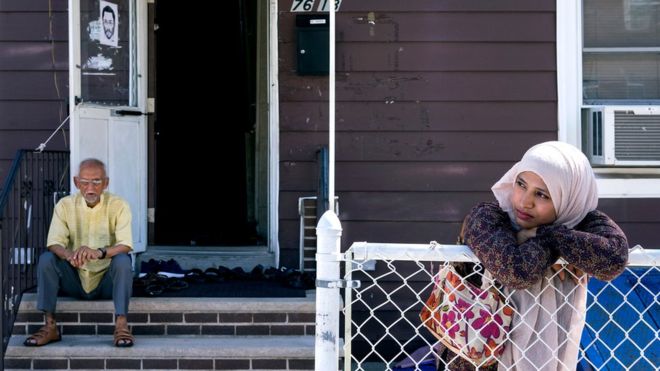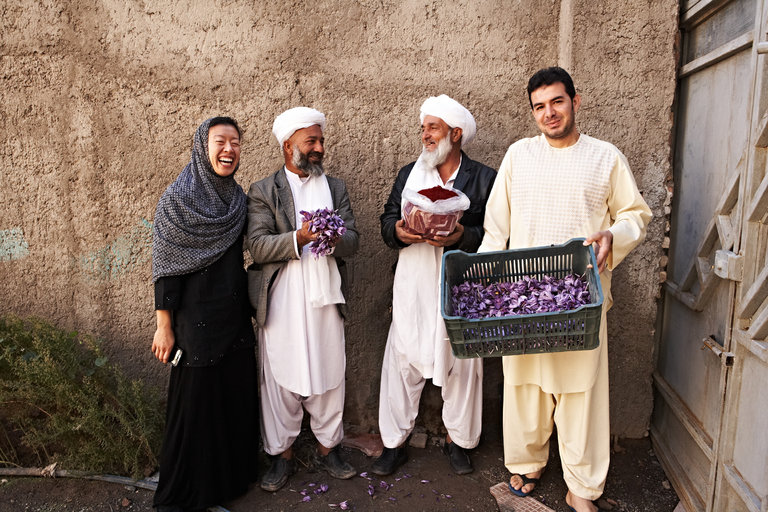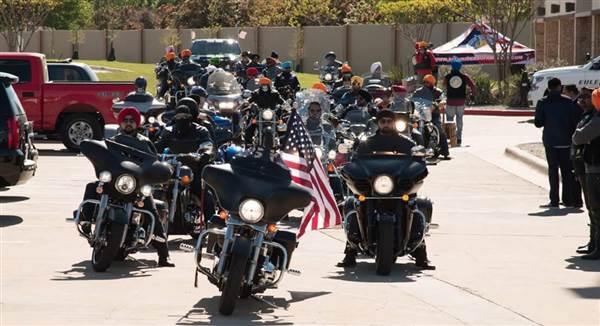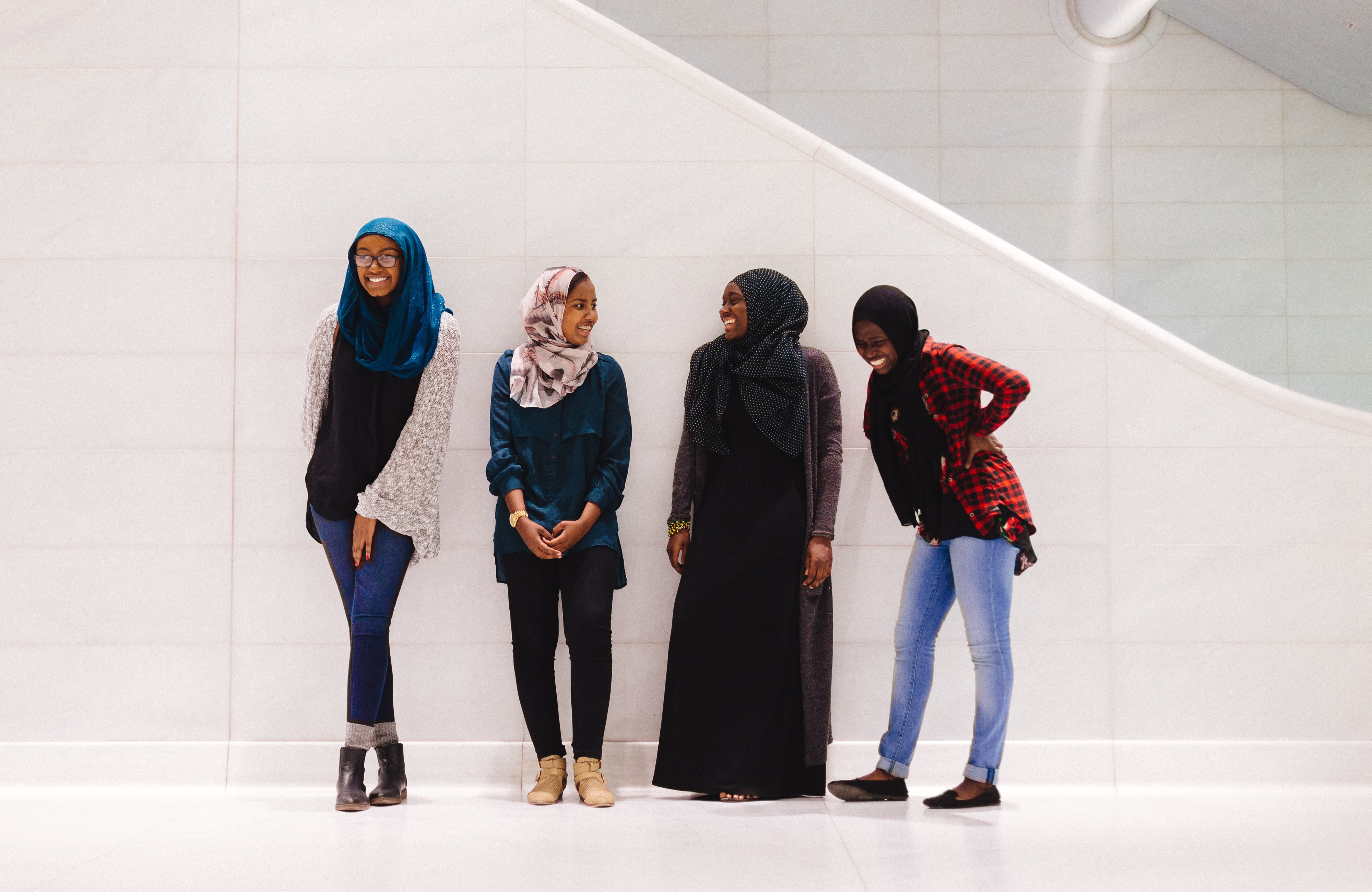With all the stories on the Internet it can be difficult to always stay in the know. To help, we’ve searched the web for interesting pieces of news, videos and tips to help you start off your week on the right foot.
1. New York mayor: Muslims ‘in crosshairs of bigotry’

The two men were remembered in prayers at the al-Furqan Jame mosque on Sunday. (AP)
Just a day after the Queens shooting of New York Imam, Maulama Akonjee and his assistant Thara Uddin, Mayor Bill De Blasio said Muslims are “living in the crosshairs of bigotry.”
The pair was shot in the head Friday as they were leaving the al-Furqan Jame mosque by a man with a gun who was reported to be leaving the scene of the shooting in the Ozone Park area. However, there have been no arrests made.
According to the BBC attacks on U.S. mosques are at their highest levels and some attendees of the mosque are calling the shooting a hate crime. Police say there is no evidence, yet, that the men were targeted because of their faith.
“While we do not yet know the motivation for the murders of Maulama Akonjee and Thara Uddin, we do know that our Muslim communities are in the perpetual crosshairs of bigotry,” Mayor Bill De Blasio said in a statement. “It remains critical that we work to bridge the divides that threaten to undermine the greatness of our city and country.”
[tweetthis]After the murder of Maulama Akonjee and Thara Uddin, NYC Mayor says Muslims are “living in the crosshairs of bigotry.”[/tweetthis]
2. Sara Ahmed Becomes First Arab Woman To Win Olympic Gold Medal in Weightlifting

RIO DE JANEIRO, BRAZIL – AUGUST 10: Sara Ahmed of Egypt lifts during the Women’s 69kg Group A weightlifting contest on Day 5 of the Rio 2016 Olympic Games at Riocentro – Pavilion 2 on August 10, 2016 in Rio de Janeiro, Brazil. (Stoyan Nenov/ Pool – Getty Images)
Egypt’s Sara Ahmed made Olympic history Wednesday by becoming the first Arab woman to win a medal in weightlifting as well as becoming the first Egyptian woman to stand on the podium. 18-year-old Ahmed finished third in the women’s 69 kilogram weight class by lifting a total weight of 255 kilograms, or 562.17 pounds.
According to The Huffington Post Ahmed said that she hopes her victory will encourage more girls to participate in the sport.
“A new weightlifting generation can be born, a new beginning,” she said.
[tweetthis]Egypt’s Sara Ahmed makes Olympic history as the first Arab woman to win a medal in weightlifting.[/tweetthis]
3. A Start-Up Turns to Saffron to Help Afghanistan Regrow

Kimberly Jung, left, a former Army engineer officer who served in Afghanistan, is a founder of Rumi Spice. Abdul Shakoor Ehrarri, far right, manages the saffron processing plant. (Credit: Melanie Dunea)
Three Army veteran and one civilian who all served in Afghanistan have started a company called Rumi Spice which buys saffron from Afghan farmers and sells it to international customers.
Their business is part of a small start-up of efforts to help develop Afghanistan’s resource economy.
“We wanted to create something to empower everyday Afghans long after we left,” said Kimberly Jung, one of Rumi Spice’s founders, who said the company’s name was inspired by the 13th-century Persian poet.
The company started two years ago and is now selling saffron that is used by chefs in renowned restaurants like the French Laundry in California and Daniel in New York. It also appeared on the shelves and website of the luxury food seller Dean & DeLuca earlier this month.
“As overall aid money to Afghanistan has decreased, a new mind-set of entrepreneurship has taken hold,” said Ahmad Fahim Didar, the director of the new Afghan chapter of Startup Grind, a global start-up community that works with Google for Entrepreneurs.
According to The New York Times the company’s founders decided to focus on working with farmers because 80 percent of the Afghan population works in agriculture.
4. For Black Muslims students, a two-pronged fight for solidarity

NYU Junior Mariyamou Drammeh waves to the camera. (Emilio Madrid-Kuser)
PBS with the help of four NYU students, set out to talk about a double-pronged issue: being black and being Muslim.
Breaking the issues down into different parts, PBS writes that “Black Muslims, immigrants and native-born, remain a large portion of the Muslim community in America.”
According to a 2015 Pew Research study, 28 percent of American Muslims identify as Black, which makes them the second-largest grouping of Muslims in the country. This is smaller than white Muslims, a category that includes most Arabs but greater than Asian Muslims. However, among native-born Muslims, over 40 percent describe themselves as Black.
Experts say despite the demographics, much of the prevailing public “American Muslim mindset” focuses on an Islam from thousands of miles east of those demographics.
Alaina Morgan, a lawyer and Ph.D candidate at NYU studying the history of Black Muslims in the African diaspora, told PBS that there’s a “hierarchy of authority and authenticity” within Islam.
“Even among African-Americans who converted to Islam, they have historically looked at the Middle East and North Africa as a source of authority,” she said. “South Asian and Arab imams are looked at as more authentic.”
In the U.S., that global cultural hierarchy is mapped over a hierarchy of race.
5. Sikh Riders of America Aim to Educate with ‘Selfless Service’

Members of Sikh Riders of America heading out on a ride. (Sikh Riders of America)
After the Aug. 5, 2012, mass shooting at the Sikh Temple of Wisconsin in Oak Creek a group of Sikh-American friends wanted to do something to help educate others about Sikhs, Sikhism and how Sikh Americans contribute to the community.
Because all five happened to have motorcycles, they realized they could use their bikes to reach out to the larger biker community so they created Sikh Riders of America.
“We are doing this selfless service for couple years with a hope to bridge the gap between diverse communities and spreading lake of love with the very basic principle of Sikhism, which is sharing with everyone,” Gurinder Singh Basra of Sikh Riders of America told NBC News. “We live in a diverse world, where we all need to learn about each other and start a positive dialogue about any misunderstandings. [Our] ultimate goal is to educate everyone that we are all brothers and sisters and there shall be no place for hate in our lives and hearts.”
[tweetthis]altM’s weekly roundup of news[/tweetthis]
This list was curated by Kaitlin Montgomery, altM News Editor





